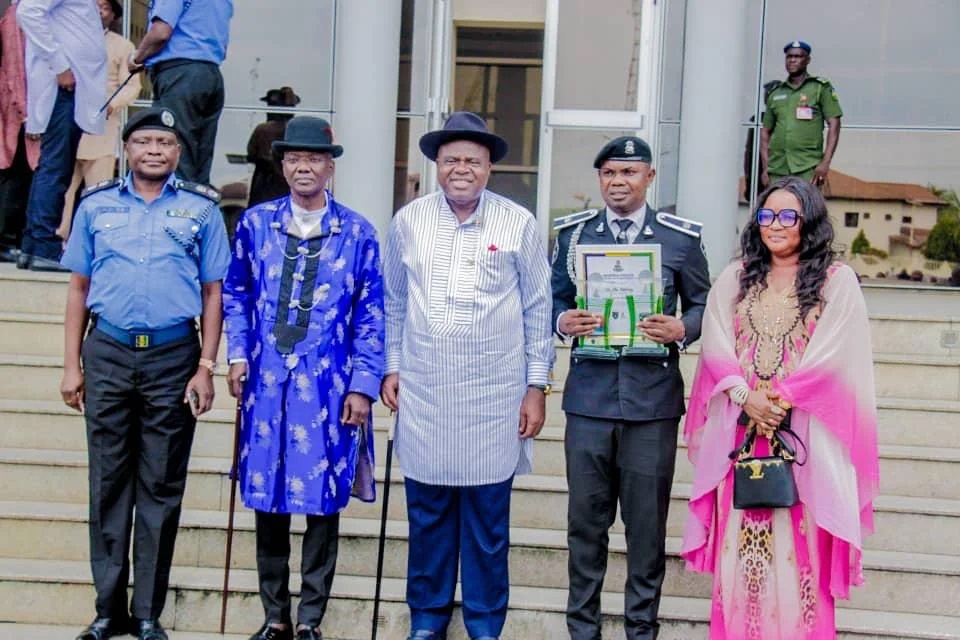Authorities in Nigeria’s Bayelsa State have arrested multiple suspects linked to the abduction of High Court Judge Ebiyerin Omukoro, who was kidnapped in June and held captive for nearly two weeks. Governor Douye Diri announced the breakthrough on Wednesday during a government meeting in Yenagoa, where he also honored Superintendent of Police Sentome Obi for refusing a $17,000 bribe from a suspect. The case highlights intensified efforts to combat crime in the oil-rich southern state.
Justice Omukoro was seized on June 21 outside Kilimanjaro, a well-known restaurant in Yenagoa, sparking a 12-day rescue operation involving multiple security agencies. Governor Diri confirmed that all individuals connected to the crime—except the alleged gang leader, who remains at large—have been detained. “We summoned security agencies, provided logistics, and ensured the judge was freed unharmed,” Diri said, crediting technology such as surveillance drones and newly installed CCTV cameras for improving the state’s crime-fighting capabilities.
The governor reiterated a “zero tolerance” stance on criminal activity, warning those involved in illicit acts to avoid Bayelsa. His administration’s security overhaul aims to address longstanding challenges, including kidnappings, which have occasionally targeted high-profile figures in the region.
Amid the announcement, Superintendent Obi received public commendation for rejecting a bribe during an undisclosed investigation. Governor Diri awarded the officer—a Bayelsa native—a three-bedroom home and a car, describing him as a model of integrity for Nigeria’s police force, which has faced criticism over misconduct scandals. “SP Obi has bolstered the image of the Nigerian Police and proven that character outweighs wealth,” Diri said, urging other officers to emulate his example. The governor also recommended Obi for promotion to the Inspector General of Police.
Francis Idu, Bayelsa’s police commissioner, praised Obi’s dedication and called for increased government investment in security infrastructure to safeguard communities. The collaboration between state authorities and law enforcement, he noted, has been pivotal in recent successes.
The arrest of Omukoro’s abductors marks a rare victory in a region where kidnappings for ransom have strained public trust. While the judiciary has not disclosed potential motives for the judge’s abduction, the case has drawn attention to risks faced by legal officials and the broader push to modernize Nigeria’s security strategies. Bayelsa’s use of drones and digital surveillance mirrors trends across West Africa, where governments increasingly rely on technology to counter organized crime.
As manhunts continue for the fugitive gang leader, officials emphasize that sustained investment and community cooperation remain critical to deterring future threats. For now, the resolution of Omukoro’s case offers a glimpse of progress in a state determined to shed its reputation as a haven for criminals.
